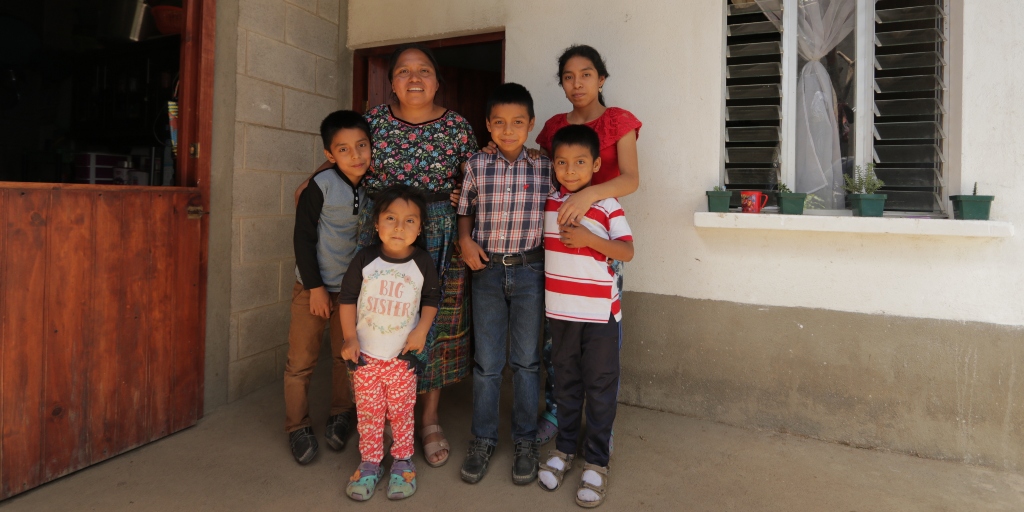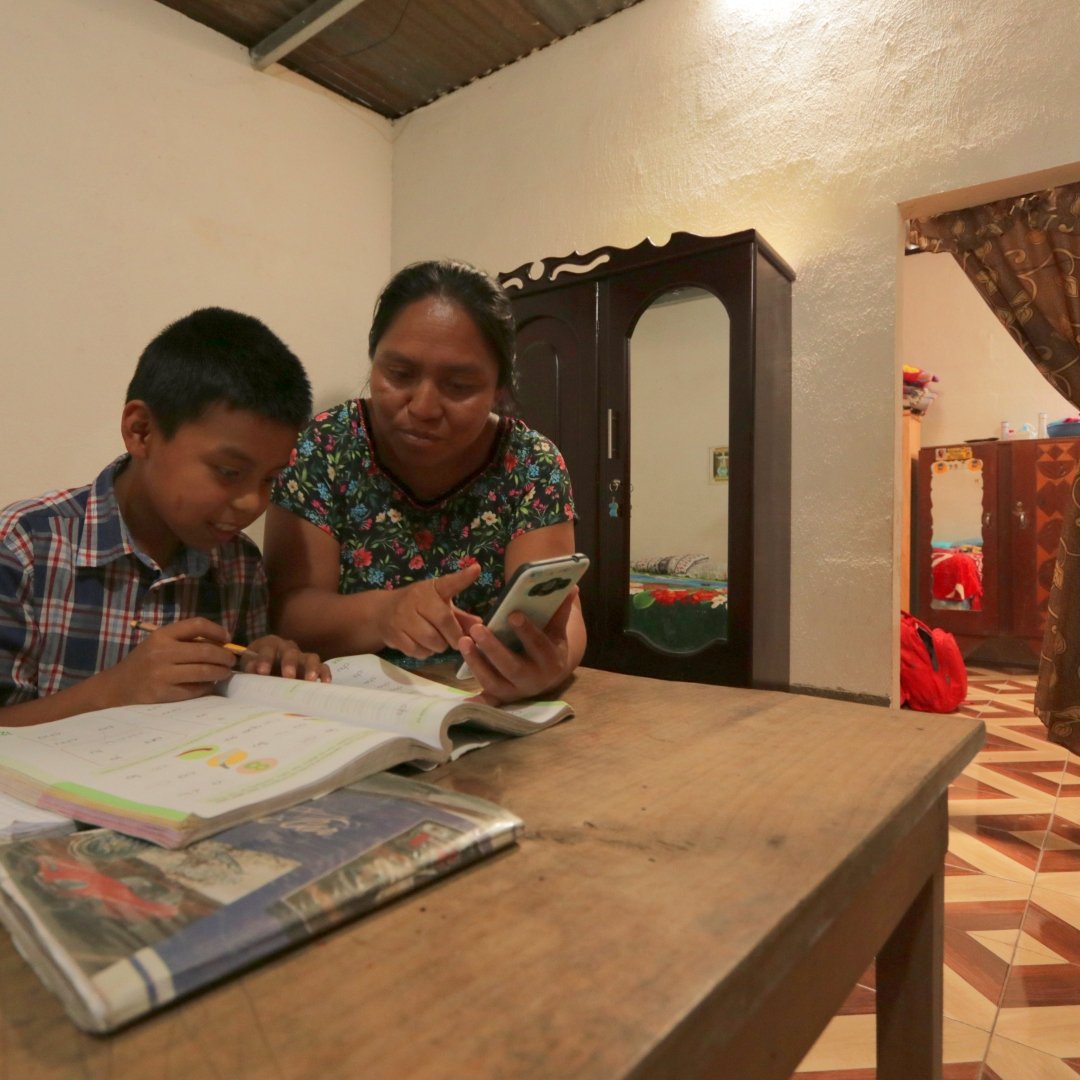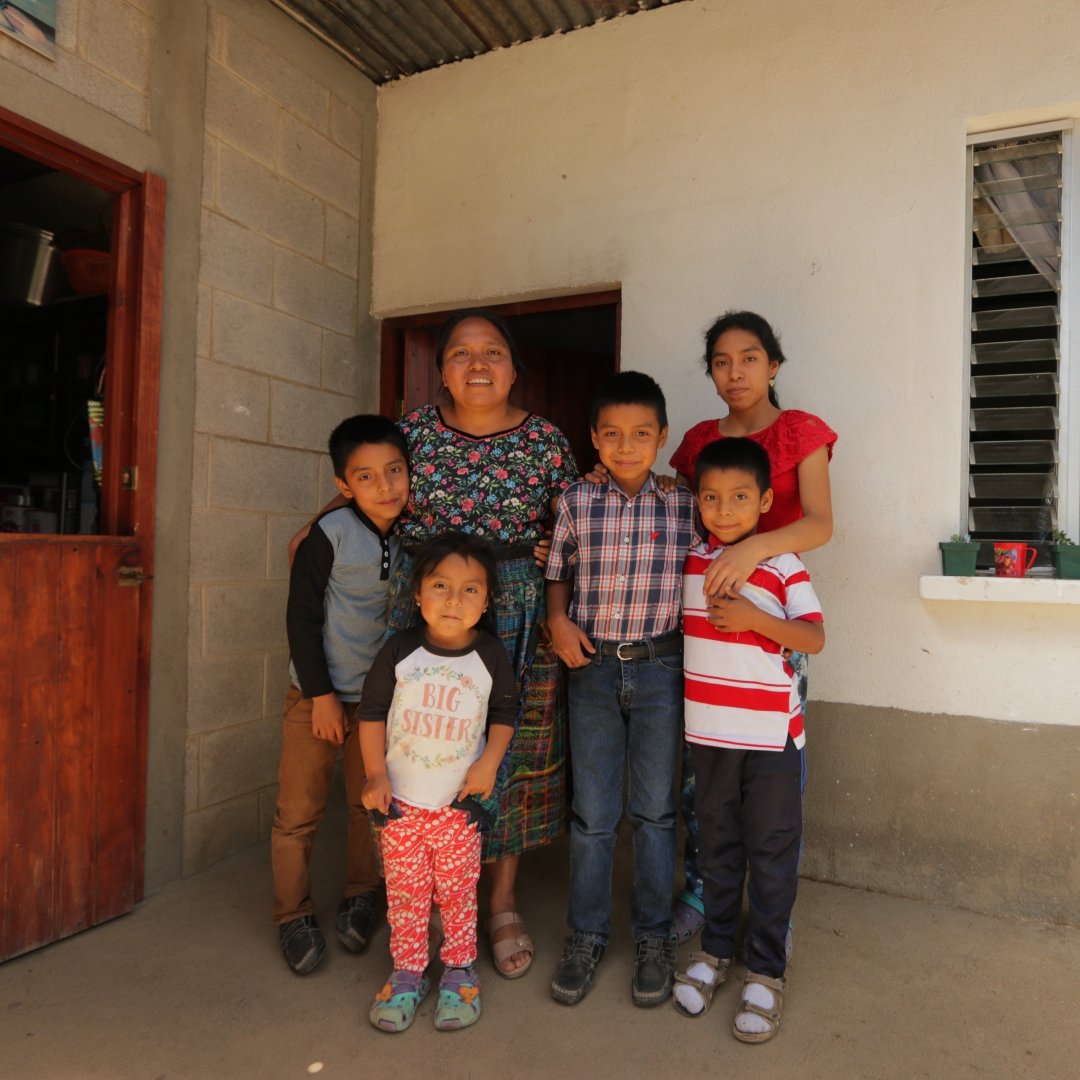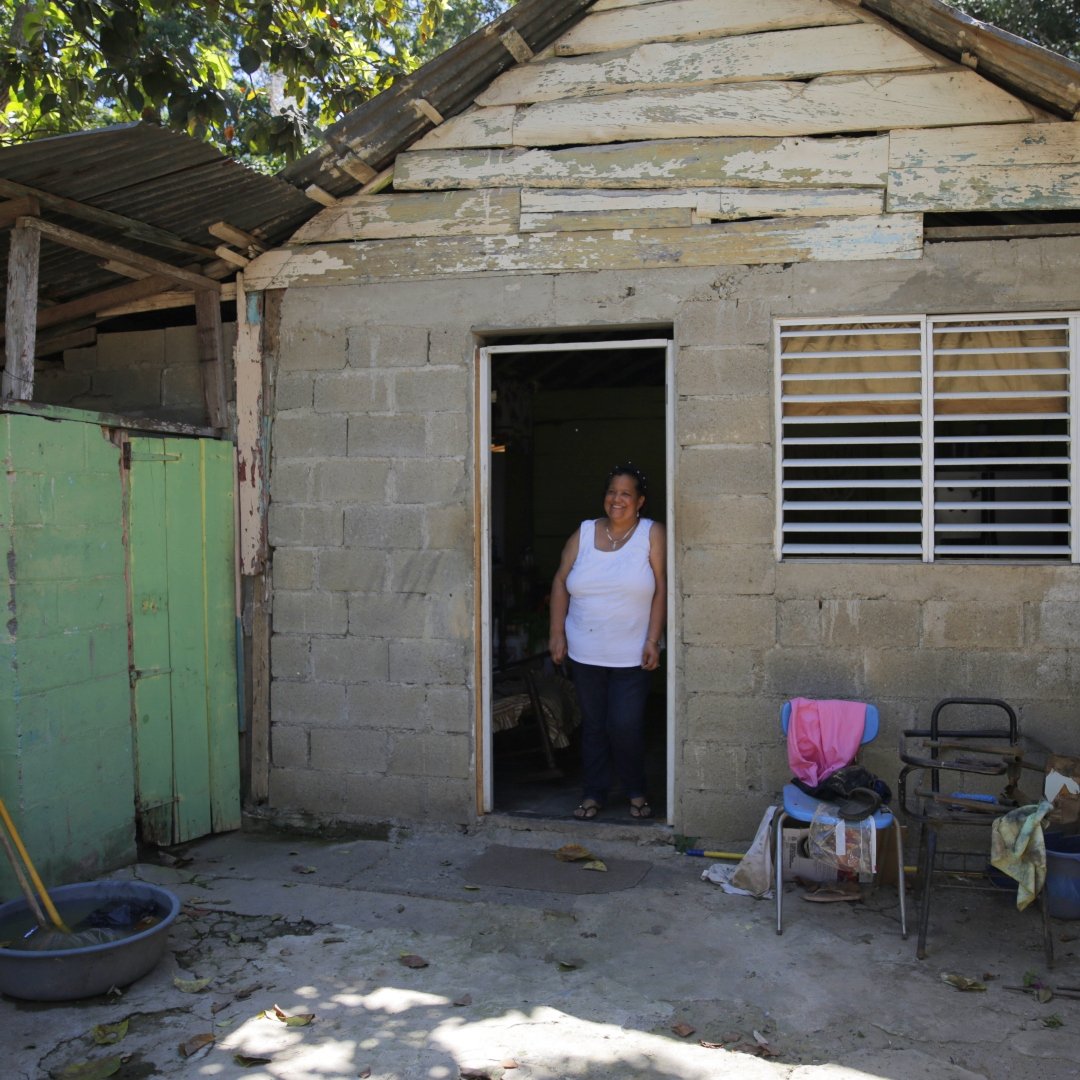
Families around the world give surprising answers on the meaning of poverty.
In Pope Francis’ message for World Day of the Poor Nov. 13, he spoke of a paradox that clashes with “our human way of thinking.”
The paradox is that there exists a form of poverty that can enrich our lives and set us free.
True wealth, the pope reflected, is a reciprocal love that leads us to bear one another’s burdens so that no individual is left behind or excluded. That, he said, is the essence of solidarity.
Walking in solidarity with the world’s poor and marginalized people has always been a cornerstone of Unbound’s mission. But in the aftermath of intensive shocks to the global economy in the last few years, the pope’s call for solidarity with the world’s poor feels more urgent.
Arriving at what truly matters in life
Pope Francis encourages us to personally encounter the poor. It’s the role of Unbound’s regional reporters to engage in such encounters to share stories of poverty and survival with the Unbound community. In mid-2022, they asked families a thought-provoking question:
What does poverty mean to you?
Many of the responses revealed something unexpected: The poor themselves know better than anyone that there exists a poverty that can set a person free. People in poverty stand to teach us much more about this life than what we could ever hope to discern or experience on our own.
Here’s a look at three Unbound sponsored families who shared what poverty means to them.
Maria, Guatemala—Unity in poverty
During the rainy season, the house that sponsored child Ricardo’s family lived in leaked, turning the dirt floor into a pool of water. He and his five siblings slept in one room, and there were days the family did not have food to eat. His mother, Maria, washed clothes, and his father, Antonio, took jobs in agriculture and construction, but opportunities were scarce.

María helps 10-year-old sponsored child Ricardo with his virtual schoolwork. María calls herself “everyone’s teacher,” as she makes sure her children always get their homework done. She also taught her husband, Antonio, how to read, write and do simple math equations.
Life improved once Ricardo became sponsored through Unbound. The family used some of the sponsorship funds to purchase chickens they now raise and sell. Little by little, they made improvements to their home. This is what poverty means to María:
There is an advantage and there is a disadvantage to poverty. Perhaps the advantage is having unity with others. When we eat, even if it's a plate of herbs, we all get together at our humble table … dad, mom and children, and the little basket of tortillas is enough for everyone. This situation gives us joy because during our talk, a story comes out, and there is communication between us. Poverty does not disintegrate us. If one sees it from the positive side, poverty means unity, but there are very few of us who manage to understand this.

María, mother of sponsored child Ricardo, stands with her children in front of their improved home in Guatemala. With assistance from Unbound, the family was able to fix their leaky roof and create more bedrooms for their family of eight. (Pictured left to right) Oscar, 7; María; Nataly, 4; Ricardo, 10; Clara, 16; and Dimas, 6.
Dilcia, Dominican Republic—Love in poverty
Dilcia, grandmother and guardian of several individuals sponsored through Unbound, cares for her ailing husband with income from preparing and delivering snacks to a nearby school. She calls her childhood “in the middle of poverty” sad but happy, growing up with a single mother and leaving her dreams behind to help raise her younger siblings.
Now at age 60, with assistance from Unbound’s Small Business Accelerator, Dilcia is expanding her natural seasoning business and hopes to make needed home improvements. This is what poverty means to Dilcia:
Poverty is better if you know how to live it with love, but if you want to see it in a different way it gets harder. ... With love, you are able to keep moving forward in the middle of poverty, and that’s what I had to do.

Dilcia stands in the doorway of her home in the Dominican Republic. She raised a multitude of children in her home, many of whom she adopted as her own from other family members who could no longer care for them.
Click to tweet:
Wealth is not happiness; wealth is the life that God gives you. #catholicmom
Gissell (left) and her mother, Santa, pose for a photo in their community of Barrio Nuevo, Dominican Republic. With assistance from Unbound, they were able to expand their salon business by setting up a workspace inside the family’s home.
Santa, Dominican Republic—Humility in poverty
In Barrio Nuevo in the Dominican Republic, Santa, mother of Unbound sponsored member Gissell, calls herself the “community leader.” A lifelong barrio resident, Santa finds herself fighting to bring change to her crime-riddled community. A hairdresser, she is the caretaker of 30-year-old Gissell, who was born with a disability, and Gisell’s children.
Santa understands that while poverty means the lack of many necessary things, it also leads her to appreciate what she does have.
The best thing in life is humility. … Sometimes you are poor and you are rich, because when you are hungry and you have rice with egg, you eat it [and it] is the best dish!
Wealth is not happiness; wealth is the life that God gives you. … You want to have what is necessary, because we all need what is necessary to eat, dress and go to school, but wealth sometimes makes you unhappy. You have everything in a moment, and you lose it in a second when life is gone. Only what you have done, the good that you have done, is what remains.
Copyright 2022 Unbound
Images: copyright 2022 Unbound, all rights reserved.
About the Author

Unbound
Unbound is an international nonprofit founded by lay Catholics grounded in the Gospel call to put the needs of the marginalized and vulnerable first. We build relationships of mutual respect and support that bridge cultural, religious and economic divides. We bring people together to challenge poverty in Africa, Asia, and Latin America. We invite you to join us. Find us on Facebook, Instagram, and YouTube.

.jpg?width=1080&height=1080&name=20221123%20Unbound%202%20(1).jpg)

.png?width=1806&height=731&name=CatholicMom_hcfm_logo1_pos_871c_2728c%20(002).png)
Comments